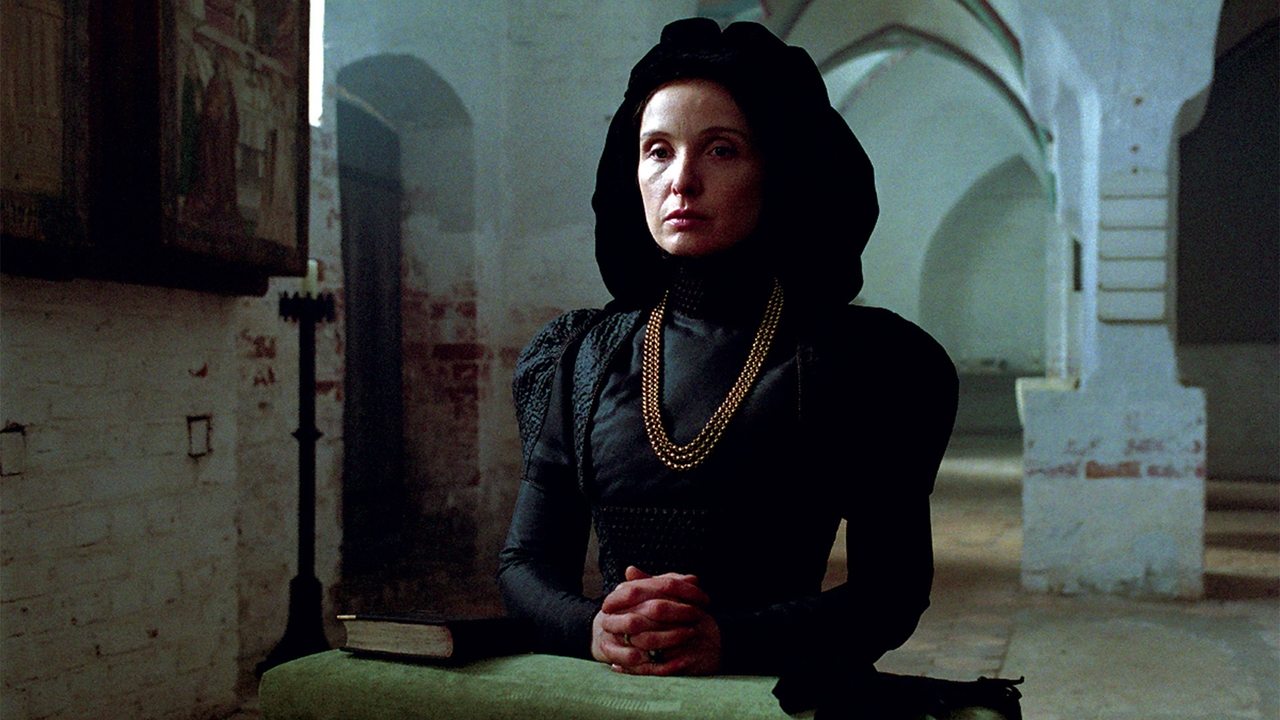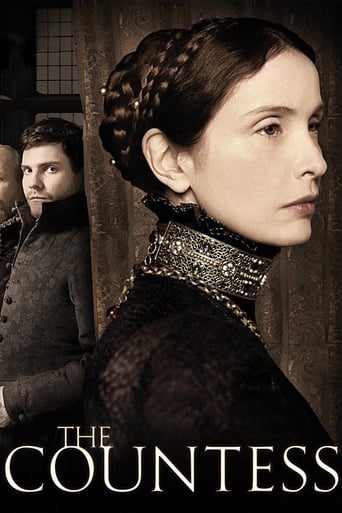StunnaKrypto
Self-important, over-dramatic, uninspired.
Roy Hart
If you're interested in the topic at hand, you should just watch it and judge yourself because the reviews have gone very biased by people that didn't even watch it and just hate (or love) the creator. I liked it, it was well written, narrated, and directed and it was about a topic that interests me.
Aneesa Wardle
The story, direction, characters, and writing/dialogue is akin to taking a tranquilizer shot to the neck, but everything else was so well done.
Ezmae Chang
This is a small, humorous movie in some ways, but it has a huge heart. What a nice experience.
GeoPierpont
"Snow White" was not able to portray the true nature of a woman in search of eternal beauty, hence, her evil nemesis was far removed from the end product of virginal perfection. Not the case for this deplorable inquisition of age and virtue. Being unfamiliar with Delpy's uncanny abilities in the realm of all that is film, I was overwhelmed with her many contributions to such an intractable historical conveyance.My first reaction was how does organic matter create powerful enzymes to effect a youthful appearance? Silly girl, however a poignant aspect of the narrative. Provide me, at least, the ingredients of the witches broth that defines silken softness? I will have many less complaints of accents, sullen sex scenes, miscasting and score.I will complement the introduction of the "God made Man in His Image" and its transpose, but the more impressive allegory was that of the glorified man in battle. Very poignant and relevant today as that Commandment from Moses is most deviously interpreted for judicious use in greed and power.I applaud Delpy's provocations of this display of deeds undone and recommend for the more refined film reviewer.
gradyharp
Writer/director/producer/musical scorer/actress Julie Delpy brings to the screen a character from history that few know. The film is based on the true history of the woman known as The Blood Countess, but after viewing this film it is obvious that the actual figure on whom the story is based was a brilliant political mind, a woman of noble breeding who could read and write in four languages, who once widowed was able to successfully defend her lands from the warring Turks and exact control over the reigning Hungarian King Matthias. But back to the history of the character as written by Delpy. 'Countess Elizabeth Báthory de Ecsed (Báthory Erzsébet in Hungarian) (1560 - 1614) was a countess from the renowned Báthory family of Hungarian nobility. She is considered the most prolific female serial killer in history and possibly the most prolific of any gender. She and four collaborators were accused of torturing and killing hundreds of girls, with one witness attributing to them over 650 victims, though the number for which they were convicted was 80. Erzsébet herself was neither tried nor convicted. In 1610, however, she was imprisoned in the Csejte Castle, where she remained bricked in a set of rooms until her death four years later. Later writings about the case have led to legendary accounts of the Countess bathing in the blood of virgins in order to retain her youth.' The film opens with voice over by István Thurzó (Daniel Brühl) who relates the story of his only love. We are privy to the strange behaviors of the young Erzsébet who had a sadistic streak and was at birth promised to be the bride of Ferenc Nádasdy (Charly Hübner). She became a beautiful woman and Erzsébet (Julie Delpy) married General Nádasdy, gave birth to children, and together they were the power couple of Hungary. When Nádasdy dies, Erzsébet meets and falls passionately in love with István Thurzó (Daniel Brühl), a many 19 years her junior, but Istvan's father György Thurzó (William Hurt) prevents Istvan from remaining with Erzsébet. Left alone Erzsébet remains a powerful warrior, dallies with the sadomasochistic Dominic Vizakna (Sebastian Blomberg), but fears her young lover will forget her if she ages. She discovers that the blood from virgins will restore her youth and thus begins the serial killings to support her vanity. As questions of debts owed to her by the King there is an investigation of her personal history led by György Thurzó and without proper trial she is condemned to house arrest in darkened sealed rooms in her own Csejte Castle where her fate is sealed. The film is beautifully designed, costumed, photographed and scored, and Delpy manages to pace her story credibly and well. For this viewer there is an absence of gritty passion that would make the history more indelible: Delpy and the remainder of the cast fail to create fiery on-screen chemistry that would have brought a sense of stronger impetus to the heinous acts that occur. But as a piece of rarely known history it is a fascinating film about a strong woman of the past and the impact she had on her country ... and on legends! Grady Harp
rchalloner
I haven't seen the film yet, I was thinking of seeing it this week, but given some of the things I've read in the reviews, I may not bother. The story recounted in the film is NOT a true story at all. Countess Elizabeth Bathory existed and she was indeed charged with a number of supposed murders, but the charges were never properly proved. In fact no evidence was properly presented - her 'trial' was a politically motivated set-up. She was an extremely rich and powerful woman living at a time when in most societies, but especially Eastern European ones, wealthy and powerful women were hugely resented by their male counterparts.Once she was widowed Countess Bathory chose not to remarry as she did not want another man to take control of her lands. She wanted to rule her estates herself - and she was a very capable ruler. Unfortunately powerful men in Hungary (and the Austro-Hungarian Empire) were greedy for her lands. They could not dispossess her legally, so they hatched a plot to have her charged with terrible crimes. Her servants were tortured and forced to accuse her, however, no credible evidence was ever presented. It was enough however, for her lands to be confiscated.As for punishment, she was NOT bricked up in a room and fed through a hole in the wall. That is fantasy. She was confined to a few rooms in one of her castles, a kind of house arrest. Sadly films like this perpetuate the myth and falsehoods about a woman who, although tough and sometimes hard on her servants, was never guilty of the horrendous crimes of which she has been accused. I am so sick and tired of seeing history re-written and fabricated that I probably won't go and see it now - and I would warn anyone who thinks they are going to see something 'historical' that it just isn't.
streep82
this is very well made, true to the history, geography and atmosphere of the place where the story takes place. also very well played, esp by Julie Delpy who already is known for her convincing but modest acting. Costumes and art decoration were superior. The story was told well too, considering it's telling a rather controversial story and that the main character is an anti-hero.Still it's very successful in reflecting the controversies in history telling and discussions about historians, heroes and storytellers by saying they're the real devil. Watch it definitely and compare it to other historic movies, you'll sense the difference...

